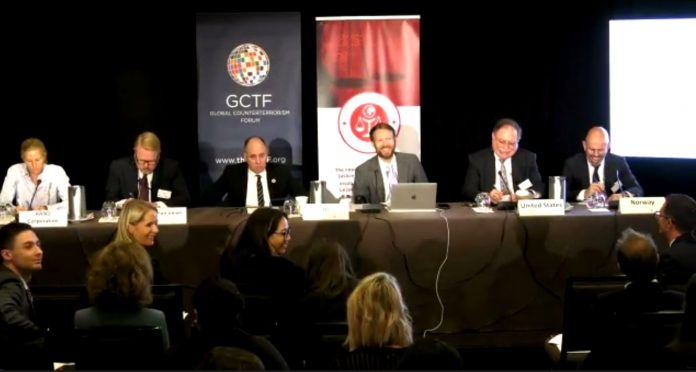Washington, DC – In the ongoing (Sep 19-23) Global Counterterrorism Forum (GCTF) meetings in New York, the Biden Administration has pushed to introduce the term ‘Racially or Ethnically Motivated Violent Extremism’ (REMVE) to refer to the White Right Wing violent activities in the West and categorize these as international terrorist activities. The USA has been supported in this by other European allies. In contrast, several Asian countries have opposed this, fearing that the attempt to superimpose this essentially western phenomenon would dilute the international fight against terrorism.
Interestingly, this move comes on the eve of the US mid-term elections, even as we see the right-wing gaining ground in elections in countries like Sweden. The US and its allies have tried to put forward the idea that it is the White Right Wing extremist networks, which are forming alliances across the western world, including Australia and New Zealand, which pose a greater danger to the entire world, than the terror outfits like Al Qaeda, ISIS, Taliban, HAMAS, Hezbollah, Jaish e Mohammad, etc. However, Asian and Middle East countries, which have been facing the brunt of terrorism from these groups, do not favor this move. They fear that the West would now try to introduce this definition in the UN and dilute the global counterterrorism fight.
GCTF tweeted that the US and Norway, along with the Malta-based The International Institute for Justice and the Rule of Law (IIJ), organized a side event on September 20 to explore using the criminal justice tools to counter REMVE. It added that the ‘participants learned about tools to enhance their understanding of REMVE and develop responses to this threat.’ A ‘toolkit’ to address the REMVE was also introduced at the conference.
There is also a fear in some countries that this REMVE may become the ‘nuclear weapons in Iraq’ issue. When the US had Al Qaida cornered in Afghanistan in 2003, a bogey of nuclear weapons in Iraq was created. The consequent Iraq invasion diverted USA’s and the world’s attention and resources from Afghanistan, enabling Al Qaida and Taliban remnants to escape. Similarly, when terrorism is on the back foot at the moment due to concerted global action, any diversion would allow it to regroup and strike back in new avatars.
GCTF Members and experts use several expressions to describe REMVE and inter-related threats. These include “racially or ethnically motivated terrorism,” “ideologically motivated violent extremism,” “right-wing terrorism,” “far-right terrorism,” “extreme-right terrorism,” “violent right-wing extremism,” and “white supremacist terrorism,” among others. Despite differences in terminology, each of these expressions describes terrorist attacks perpetrated by individuals or groups who promote or conduct violence in the name of defending against perceived threats to their racial or ethnic identity or ensuring the superiority/supremacy thereof.
Thus, while there have been increased attacks by white supremacists in different Western countries, it would be a hard sell to compare them to the existing well-established ideological and logistic networks of global terrorism, which have been hitting both the developing and the developed world equally hard. The fight against such terrorist networks is in no way over, as the regular terror attacks in the Sahel, Horn of Africa, Middle East, and South and South East Asia show. US and western allies would have to work hard to convince the developing world that diverting resources and attention from the existing existential terror threat for many is worth taking the risk.

Launched in 2011, GCTF has been touted as an informal, inclusive, consensus-based, and apolitical forum that contributes to the international architecture for addressing terrorism. The European Union and Egypt are its current co-chairs. The role of technology, education, holistic or whole of government approach, addressing root causes of terrorism and a gender-sensitive approach, including human rights issues in countering terrorism, online radicalization, restricting terrorist financing and movement, tackling the use of drone technology by terrorists, were some of the themes discussed in the conference.










